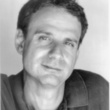The upright thinkers: the human journey from living in trees to understanding the cosmos
Description
More Details
9780553551143
Excerpt
Similar Titles From NoveList
Similar Authors From NoveList
Published Reviews
Booklist Review
Mlodinow, Stephen Hawking's sometime coauthor (A Briefer History of Time, 2005; The Grand Design, 2010) and fellow physicist, is a whiz of a popular-science writer, as this amazingly compact yet satisfying history of technical and scientific discovery attests. Spanning from Homo habilis noticing that certain stones could be split to make scraping blades to the questions of physics, chemistry, and biology that remain to be either answered or retired, the book's scope is breathtaking, though its pace never seems so. Attending to the real people involved in the story he tells, and gifted with a knack for inserting a personal anecdote, a biographical tidbit, or a laugh line just when one is needed, Mlodinow never bores or exhausts. His structuring of the book is also exemplary. It's in three sections, the first ranging from H. habilis to Aristotle and the formalization of reason, the second from Renaissance cosmology to Darwin, and the third from Planck's and Einstein's invention of the quantum onward. Amateur science mavens couldn't ask for a better brief, introductory text.--Olson, Ray Copyright 2015 Booklist
Publisher's Weekly Review
Mlodinow (Subliminal), a theoretical physicist at the California Institute of Technology, opens his powerful new book with a story about his father, who as a starving prisoner at Buchenwald once traded his bread for the answer to a riddle. He writes that upon hearing his father's story, he "realized then that search for knowledge is the most human of all our desires." That is the recurring theme as Mlodinow follows scientific thought from its birth in prehistoric man to its blossoming in Aristotle, Newton, Lavoisier, Darwin, Einstein, and beyond. He discusses the intransigence of belief in a natural world ruled by gods before Aristotle and the subsequent intransigence of belief in a natural world ruled by too many erroneous Aristotelean precepts. He notes the suffering that can accompany the pursuit of knowledge-such as that of Galileo-as well as the enormous, wordless satisfaction. Breathing new life into science history, he frames narratives of great thinkers with serial scenes of his father's great courage and curiosity, despite only having a seventh-grade education. Mlodinow's point has been made before, but rarely so well: the quality that best distinguishes-and honors-humankind is not an ability to answer questions, but that "after millennia of effort," nothing stops us from asking them. (May) © Copyright PWxyz, LLC. All rights reserved.
Library Journal Review
In what is essentially a collection of brief biographies of notable scientists and philosophers, Mlodinow (Subliminal) traces the development of human ideas of the structure and functioning of the universe from Aristotle to Heisenberg. Arguing that progress often comes from iconoclastic minds and personalities willing to ask unconventional questions, he focuses on the social surroundings and temperaments of these pioneers, noting, for example, Sir Isaac Newton's misanthropy and Dmitri Mendeleev's sloven-liness. More broadly, he suggests that part of what makes us human is our relentless inquisitiveness. The narration, performed by the author himself, is halting and sometimes makes for uncomfortable listening. VERDICT While the book is informative and occasionally entertaining, there is little here that is original aside from personal stories of the author's father's hardships in Nazi Germany. Others, notably Daniel Boorstin (The Discoverers), have done better work in the history of science. Only for those with a casual interest in the history of science.-Forrest Link, Coll. of New Jersey Lib., Ewing © Copyright 2015. Library Journals LLC, a wholly owned subsidiary of Media Source, Inc. No redistribution permitted.
Kirkus Book Review
A selective, guided tour of the human accumulation of knowledge from American physicist and former CalTech instructor Mlodinow (Subliminal: How Your Unconscious Mind Rules Your Behavior, 2012, etc.).In this smooth celebration of the human project, the author places a decided emphasis on its cerebral aspects: "The thirst for knowledge is the most human of all our desires." If at times Mlodinow drifts into hubris"we have shaped our environment to our needs, rather than allowing our environment to shapeor defeatus"it can be excused as a byproduct of his enthusiasm, the thrill of deciphering nature's puzzle and appreciating the striking characters who pioneered scientific discoveries. It is an endlessly fascinating story, this ineluctable quest that required getting out of the head's comfort zone and accepting change, and Mlodinow's explanations of often perplexing thinking are easy to digest. He throws out ideas and theories that are consistently thought-provokinge.g., "Animal brains first evolved for the most primal of reasons: to better enable motion." The author divides the book into three sections: the development of the human mind, touching down at critical junctures; the revolutionary entrance of the hard sciences; and quantum physics, developed thanks to the "brainpower in Central Europe," which Mlodinow fittingly introduces via Tom Stoppard ("It's the best possible time to be alive, when almost everything you thought you knew is wrong"). Though the book has a snug cohesiveness, the author clearly enjoys his role as storyteller, introducing entertaining, illuminating asidese.g., Lucy, Australopithecus afarensis, "had a huge belly," because she was primarily vegetarian; and "fortunately for science, in the Arab world the ruling class did find value in Greek learning." Mlodinow also reacquaints readers with significant characters, from Galileo to Planck, who made the incomprehensible comprehensible.A breathtaking survey of the human mind exponentially accelerating the accumulation of knowledge, from pratfalls to ventures beyond the veil. Copyright Kirkus Reviews, used with permission.
Booklist Reviews
Mlodinow, Stephen Hawking's sometime coauthor (A Briefer History of Time, 2005; The Grand Design, 2010) and fellow physicist, is a whiz of a popular-science writer, as this amazingly compact yet satisfying history of technical and scientific discovery attests. Spanning from Homo habilis noticing that certain stones could be split to make scraping blades to the questions of physics, chemistry, and biology that remain to be either answered or retired, the book's scope is breathtaking, though its pace never seems so. Attending to the real people involved in the story he tells, and gifted with a knack for inserting a personal anecdote, a biographical tidbit, or a laugh line just when one is needed, Mlodinow never bores or exhausts. His structuring of the book is also exemplary. It's in three sections, the first ranging from H. habilis to Aristotle and the formalization of reason, the second from Renaissance cosmology to Darwin, and the third from Planck's and Einstein's invention of the quantum onward. Amateur science mavens couldn't ask for a better brief, introductory text. Copyright 2014 Booklist Reviews.
Library Journal Reviews
In this bracing scientific history, Caltech physicist Mlodinow shows that science advances when someone asks the questions why and how. Don't worry if quantum physics leaves you quaking. With three New York Times best sellers, Mlodinow knows how to talk to the science-challenged.
[Page 62]. (c) Copyright 2014. Library Journals LLC, a wholly owned subsidiary of Media Source, Inc. No redistribution permitted.Publishers Weekly Reviews
Mlodinow (Subliminal), a theoretical physicist at the California Institute of Technology, opens his powerful new book with a story about his father, who as a starving prisoner at Buchenwald once traded his bread for the answer to a riddle. He writes that upon hearing his father's story, he "realized then that search for knowledge is the most human of all our desires." That is the recurring theme as Mlodinow follows scientific thought from its birth in prehistoric man to its blossoming in Aristotle, Newton, Lavoisier, Darwin, Einstein, and beyond. He discusses the intransigence of belief in a natural world ruled by gods before Aristotle and the subsequent intransigence of belief in a natural world ruled by too many erroneous Aristotelean precepts. He notes the suffering that can accompany the pursuit of knowledge—such as that of Galileo—as well as the enormous, wordless satisfaction. Breathing new life into science history, he frames narratives of great thinkers with serial scenes of his father's great courage and curiosity, despite only having a seventh-grade education. Mlodinow's point has been made before, but rarely so well: the quality that best distinguishes—and honors—humankind is not an ability to answer questions, but that "after millennia of effort," nothing stops us from asking them. (May)
[Page ]. Copyright 2014 PWxyz LLC





























